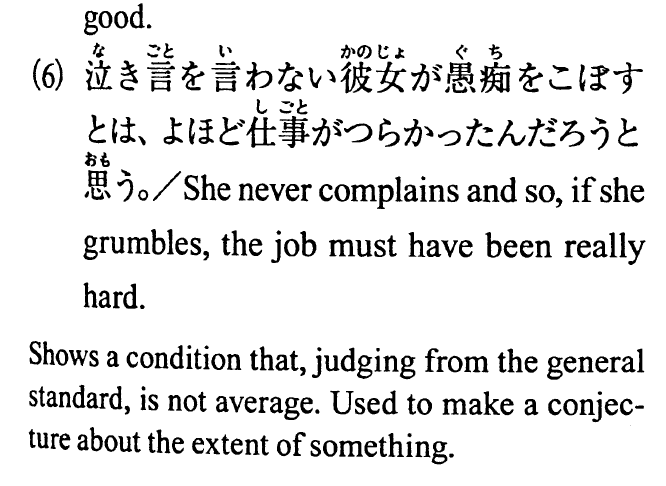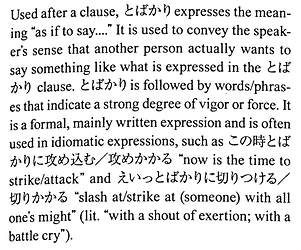(From Stack Exchange)
So, how do you translate 「行くとする」? Pretty much anything that reflects your understanding of the nuance “proceeding to perform a new action (by quitting what one is currently doing)” would do.
“I think we should get going.”, “We really hafta get going.”, etc., perhaps?
Although we could possibly do another grammar point for this, I would just like to point out that is has to do with the control factor that I mentioned in a post recently. The English translations presented there also have the feeling of ‘to try to start something new, but not have full control’, that’s why it comes off as
“I think we should get going (but maybe something is stopping us).”
“We really hafta get going (is it ok if we leave?).”, etc., perhaps?
It’s not just ‘quitting what you’re doing’, it’s usually looking for some kind of approval from someone, or hinting at that it is not easy to start the new thing due to some feeling/hindrance.




